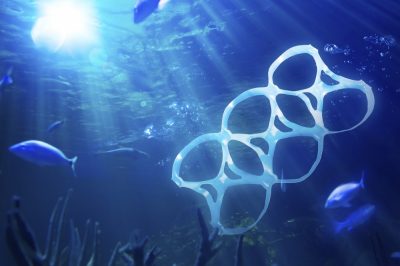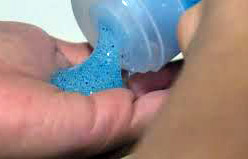Configure Now
Items in Your Cart0
0Items in Your Cart
Start building your packageShop Now
If you’re presently reading this blog, you probably truly appreciate and understand something in which we all have a passionate interest. Water!
We rely on water for hydration, irrigation, transportation, energy production, food production, weather patterns and so much more. Lakes, oceans, rivers and reservoirs across the Globe are part of the pillars that sustain life.

If you are interested in, or spend any amount of time with water from any source, you are probably no stranger to the threats that face this precious resource. Our oceans and lakes are filled with chemicals, plastics and other waste. Sea creatures are faced with more and more challenges as humans push the limits of how we use and abuse water. Giant patches without oxygen can now be found in certain areas of the major ocean bodies.
More people are realizing that we need to act quickly before our planet Earth reaches a point of no return. Our future depends on more conservation efforts taking place. Recently, President Obama announced the declaration of the largest Marine Protected Area in the United States. According to IUNC, a Marine Protected Area
“is a clearly defined geographical space, recognized, dedicated and managed, through legal or other effective means, to achieve the long term conservation of nature with associated ecosystem services and cultural values.”They are vital to ensuring the well being of our planet and of sustainable underwater ecosystems.
Legislation and announcements like this are wonderful. Unfortunately they don't give guidance or provide information on how we can help improve water sustainability and management in our day to day lives. Today we are going to explore 6 simple things you can do to help the oceans.
We know that in today’s world, the collective “we”, uses massive amounts of consumer products when we consider the food, cleaning products, clothes, and general luxury items we manufacture and use. We're not saying to cut back on everything you own and buy. Seriously examine the option of choosing biodegradable products and avoid single use plastics at all costs. Single use plastic is now regarded as one of the biggest contributors to ocean deterioration.

Reducing your plastic waste deserves a special mention. Micro plastics, in particular microbeads, are a huge threat to the waters and creatures living within them due to the almost microscopic size and sheer quantity of this culprit. Microbeads are often too small for us to see with the naked eye. Once in the waters upon which we are so reliant, microbeads are ingested by fish and other marine mammals.
Learn how ROVs assist in ocean clean-ups and sampling water quality
Whenever you wash clothes, dishes, hands, etc. you are dispatching the soap, cleaners and grey water down the drain. As a rule of thumb, we can assume that anything that goes down the drain ends up in the oceans or other bodies of water. Switching harsh chemical cleaners for non-toxic products can be a great way to care for the oceans. By switching you can ensure that you are not accidentally draining dangerous materials into our waterways.
With the global population rising more and more each year, many conservationists, scientists and researchers are worried about the state of the fisheries and wild fish stocks. While trying to keep up with the global demand for food, our oceans have been over fished and some species of marine animals are in a fragile state. To ensure that you are consuming fish that is fished or farmed sustainably, consult the Monterey Bay Aquarium Watch Guide.

Every year there are hundreds of beach, river and ocean cleanups organized by a variety of groups along the coasts. If you are looking for a way to get more involved in ocean conservation efforts, taking part in cleanup days is a great way to meet other like-minded people while collectively working to preserve our waters. Check outMeetup.com to search for a cleanup near you!
These are 6 easy ways in which you can take ocean conservation into your own hands. The possibilities for cleanup efforts, awareness campaigns, and challenges which you can take on are endless. If you know of someone who is a big contributor to the cause, or if you have any ideas of your own, please share them in the comments below, Tweet at us, or message our Facebook page.
Additional Sources Used:
July 30th, 2021
Learn all about remotely operated vehicle pilots: how to become one,...
November 5th, 2024
Learn more about what sonar is and its many uses. Read...
December 23rd, 2021
ROVs and sonar can be used to inspect underwater structures such...